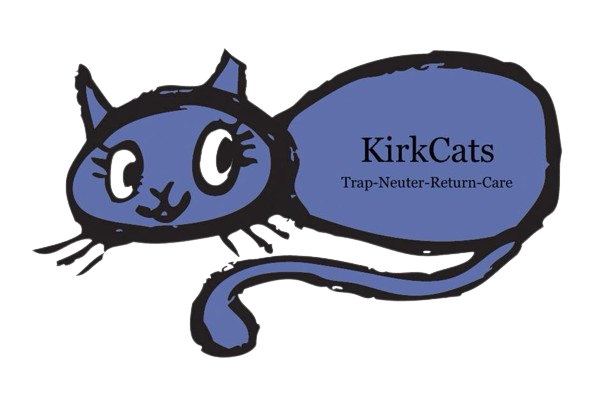Have you noticed cats roaming your neighborhood?
While some of these cats may be owned, many are likely community cats, unowned cats that may be stray (tame) or feral. Community cats exist largely because people have not been responsible, failing to spay/neuter their cats and letting them outside to roam or even abandoning them.
When a tame cat has kittens outdoors and the kittens are not socialized with humans, the kittens become feral. While young kittens can typically be socialized (tamed), the older the kitten, the harder that becomes, until, in many cases, it becomes impossible. These kittens will soon produce their own kittens, and the cycle will continue unless the community steps in to help.
Did you know:
A single un-spayed cat can have several litters of kittens each year.
A cat can go into heat and get pregnant while she's still nursing.
A female kitten can go into heat when she's four months old. Gestation is only 9 weeks, so a kitten can give birth before she's seven months old - still a baby herself.
Male kittens can mate as young as six months.
A male cat can sense a female in heat as far as two miles away.
Kittens born to community cats usually end up homeless, trying to fend for themselves and perpetuating the endless reproduction process.
A group of concerned neighbors have come together to help address this problem humanely through Trap-Neuter-Return-Care (TNRC).
You can help!
When an unneutered cat/kitten is discovered (we can tell by whether s/he has a tipped left ear — an ear that is flat at the top, indicating s/he has been spayed/neutered), we set out to trap him/her using a humane trap. We then take the kitty to a clinic to be spayed/neutered, vaccinated, ear tipped, and receive any other necessary medical services such as wound care. There are multiple clinics in the metro-Atlanta area that provide this service at lower cost. Certain counties/areas even provide this service free!
Once the kitty has recovered from the neutering (usually in a day or two), we return him/her to the place where found and work with invested neighbors to care for the cats. This involves daily food and water, adequate (usually outdoor) shelter, and monitoring for care needs and the arrival of new cats to the colony. New cats may either be lost pets that need to be returned home, or “free-range” kitties, usually the offspring of colony cats not yet trapped and neutered, that need TNRC. When kittens are young enough to be socialized for pet adoption, we try to help get them into the adoption pipelines of local shelters and rescue organizations instead of doing TNR.
The TNRC approach has been proven to be an extremely effective and humane way to deal with feral cats: stabilizing the population, providing ongoing care for them in the place the cats know as home, involving the community, and preventing feral cat euthanasia on a massive scale.
If you care about homeless cats and would like to get involved in this community effort, or if you would just like more information, please contact KirkCats. Thank you!

